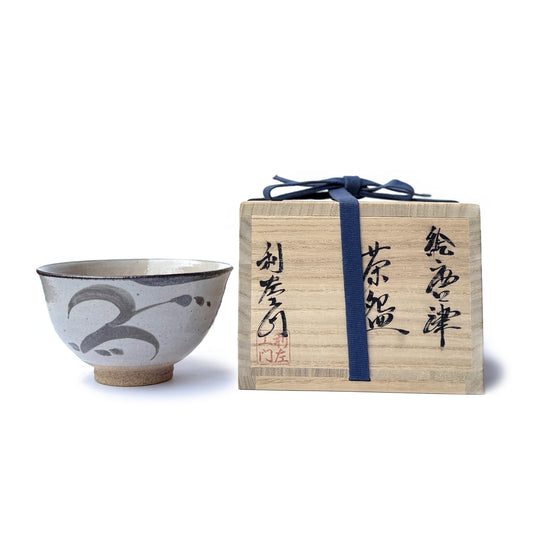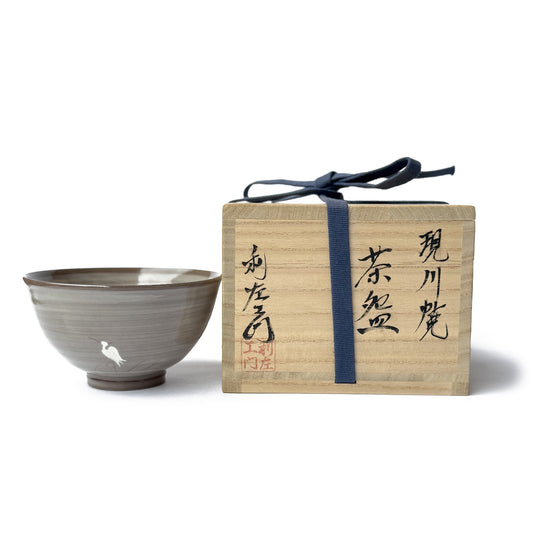
The True Worth of Matcha
Share
In 2025, Japan’s matcha industry experienced one of the most dramatic shifts in decades. Prices at Kyoto’s tea auctions soared by over 180%, driven by a rare combination of low yields, surging global demand, and fierce competition among buyers. For tea drinkers, this has meant limited availability and record-high prices, but behind the numbers lies a much deeper story.
This surge is not merely about economics; it’s about the fragile balance between nature, tradition, and craftsmanship. Matcha is not a mass-produced commodity, it’s the result of months and years of hard work. The finest organic matcha represents the pinnacle of this care, grown with respect for the land and the legacy of generations of farmers who refuse to compromise on purity or quality.
Understand what's beyond the Price
When you open a tin of truly good matcha, you’re tasting time, patience and generations of quiet craftsmanship. Behind its vibrant green hue lies years of delicate work in the fields, particularly for farms committed to organic cultivation.
1. The Slow Work of Nature
For most tea farms in Japan, tea bushes are harvested several times a year. But farms producing high-grade, organically grown matcha often harvest only once during the 1st flush in spring, when the leaves are most tender and rich in umami.
The work begins long before that harvest. Tea bushes rest through winter as farmers care for the soil, feeding it with organic composts and natural minerals that restore biodiversity. Unlike conventional farms that rely on synthetic fertilizers and pesticides, organic growers must nurture a living ecosystem that supports soil health, insects and microorganisms naturally.
2. Planting and Weeding by Hand
Because chemical herbicides aren’t used, weeding is done manually. A backbreaking task repeated throughout the year. Each plant must be inspected, pruned, and guided for balanced growth. In organic tea gardens, maintaining a healthy root system is crucial; the soil must breathe, drain, and sustain itself without artificial intervention.
3. The Art of Shading
Roughly 3 weeks before harvest, the tea gardens are covered with woven straw or cloth shades, gradually reducing sunlight. This slows photosynthesis, increasing chlorophyll and amino acids like L-theanine, the compounds responsible for matcha’s sweetness and bright green colour. The shading process requires constant attention: farmers must adjust coverage daily to ensure even growth and prevent mould in humid weather.
4. Harvest the 1st Flush
When the time comes, only the youngest leaves, the first two or three on each shoot are handpicked. Timing is critical: harvest too early and flavour is thin, too late and bitterness creeps in. Once picked, the leaves are immediately steamed, dried, and de-stemmed to create Tencha, the raw material for matcha.
5. From Tencha to Matcha
Tencha leaves are aged briefly to let their flavours settle before being stone-ground into powder. Each granite mill turns slowly (just 30 grams per hour) to avoid heat that could dull the colour and aroma. Producing one kilogram of ceremonial-grade matcha can take over 30 hours of careful grinding.

Why Organic Matcha Costs More?
Every stage of this process is done in small volumes, by skilled hands, under conditions that value purity over yield. Organic farms must also pass strict inspections and often face lower yields due to pests or unpredictable weather. Yet these efforts protect not just the land, but also the integrity of Japan’s tea-making tradition. Organic teas are rare, not because of exclusivity, but because such craftsmanship can’t be rushed. It must be tended season after season, leaf by leaf.
So when you taste a truly good matcha, you’re experiencing the culmination of an ecosystem in balance, human devotion, and time itself. That’s what makes authentic matcha worth every gram.
Discover the Rarity
At POEMS Tea Atelier, we partner directly with a 4th generation family farm in Kyoto, who honour the land, the craft and the quiet beauty of true Japanese matcha. Through this close partnership, we’ve seen firsthand why true matcha is becoming rarer, more precious, and more deeply valued than ever before.




